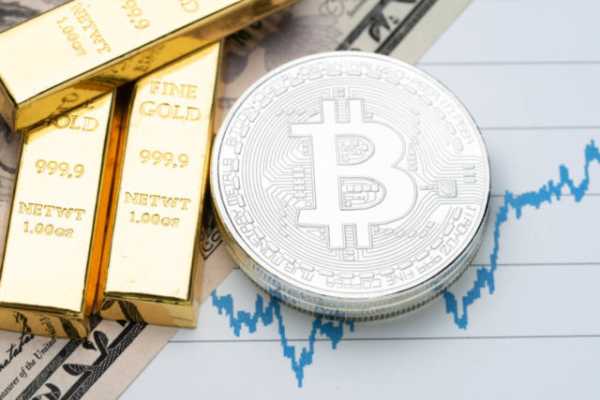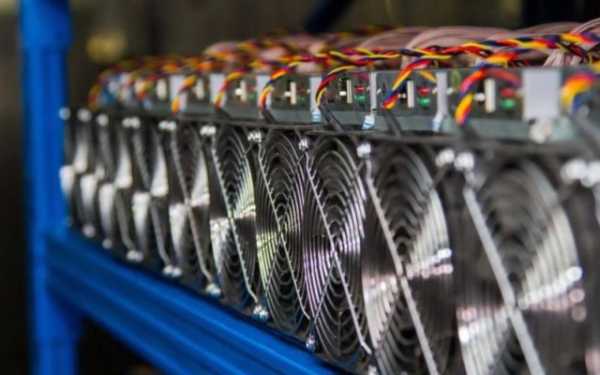Why Bitcoin Has a Hard Time Competing with Gold

Amid the conflict between Iran and Israel, the investment community has once again resumed debates about the thesis that Bitcoin can replace real gold. The reason for the disputes was the opposite reaction of Bitcoin and gold prices at the end of last week amid the escalation of the conflict between the two countries. However, experts believe that the assets do not necessarily have to compete. According to Hunter Horsley, CEO of the management company Bitwise, money flows into Bitcoin may flow not from gold, but from the US government bond markets, writes RBC Crypto.
During geopolitical and other crises, investors tend to buy assets that can protect their capital from risks. Traditionally, gold is considered one such asset. However, in recent years, many crypto investors have been promoting the “digital gold” thesis that Bitcoin also acts as a crisis-proof asset. Oil prices jumped amid Israel’s attack on Iran
“Israel attacks Iran. Oil prices jump 5%, S&P futures fall 1.5%. Safe-haven investors respond by buying gold, sending its price up 0.85%. Meanwhile, investors dump Bitcoin, sending its price down 2%. How can anyone think Bitcoin is a digital version of gold?” wrote Peter Schiff, the head of investment firm Euro Pacific Capital, a well-known Bitcoin critic and gold supporter.
Since June 13, gold has risen about 3% to $3,420 per ounce, according to TradingView. Bitcoin has risen about 1.5% to $107,000 during that time, having fallen nearly 3% before that. Both are trading near their all-time highs of around $3,500 and $112,000. However, gold has risen 31% since the start of 2025, making it one of the best-performing assets in 2025, while Bitcoin has only gained 14% over the same period.
“Bitcoin is sometimes viewed as a safe haven, but in reality it often moves in lockstep with tech stocks rather than gold. Because of this connection, Bitcoin and gold can exhibit opposing price trends during geopolitical crises,” Tiger Research senior analyst Jay Joe told Decrypt.
Investors mainly draw parallels with gold due to the scarce nature of both assets. While, for example, the issue of company shares can be changed at any time, gold and Bitcoin are not subject to such influence. Bitcoin supporters, in turn, also note that gold cannot be transferred and stored as easily as Bitcoin. With the arrival of the new administration in the United States and after Donald Trump took office as president, officials have also begun to note the similarities between Bitcoin and gold. For example, the head of the Federal Reserve, Jerome Powell, said that people use Bitcoin as virtual, digital gold, noting that the main cryptocurrency is “not a competitor to the dollar, but a real competitor to gold.”
Other experts see limited influence of geopolitics on the price of Bitcoin in the current environment.
“There are more fundamental factors driving Bitcoin at the moment than the Middle East,” said Steven Wundke, chief strategy officer at cryptocurrency investment firm Algoz, adding that June is traditionally a quiet month for Bitcoin and that the market is in a consolidation phase.
However, Wundke added that if there were “any significant escalation in the Middle East,” it could impact Bitcoin and cause the price to fall below $100,000.
Despite the seemingly opposing camps (Bitcoin and gold), some companies use both assets to build their businesses. For example, the issuer of the world's largest stablecoin USDT, Tether, acquired a 34% stake in gold-focused Elemental Altus in early June. As Tether CEO Paolo Ardoino said, the investment reflects the company's “confidence in gold's fundamentals and its critical role in financial markets.”
The market has changed
In addition, investors who consider gold a traditional safe-haven asset have not yet entered the cryptocurrency market, Wundke believes. And they are unlikely to turn to other assets.
However, this is not the only category of investors who might shift their preferences towards Bitcoin during moments of market stress.
Hunter Horsley, CEO of asset management company Bitwise, noted that money in Bitcoin may come not from traditional gold, but from US government bonds, which previously performed the same protective function as gold.
Horsley made this point in response to a report by economist Mohamed El-Erian, who pointed to the subtle reaction in US Treasury yields to the Iran-Israel conflict: “The flows are happening, they're just not being funneled into Treasuries as historical experience suggests.”
“The opportunity for Bitcoin isn't just gold. It's the $30 trillion+ that uses Treasuries as a store of value,” Horsley wrote in response to El-Erian's observation.
Источник: cryptocurrency.tech



